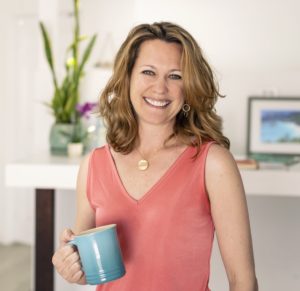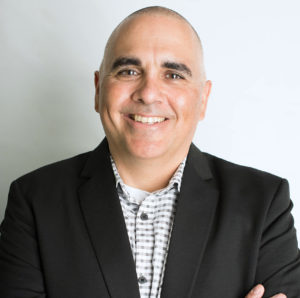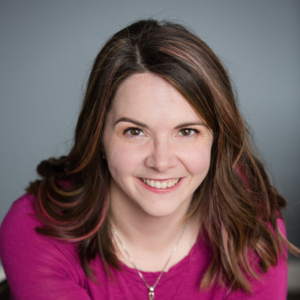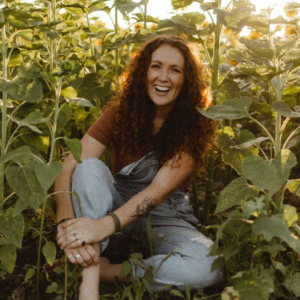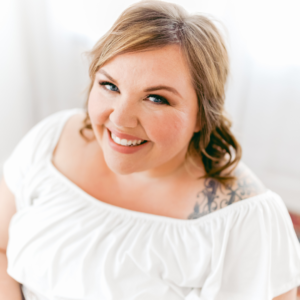Okay I’m so excited about this interview today because had I not crossed paths with these two women back when I started my business I probably would have quit.
It was 2015, I had just transitioned from charging barely nothing for web design services to making the Free 5 Day Website Challenge. I was still working full-time, and I still had a really negative mindset about my day job, like I was a victim to it and I didn’t understand that I could choose my thoughts and choose ones that didn’t drain my energy and choose ones that supported my goals. I was “unenlightened” so to speak.
The Free 5 Day Website Challenge had started to take off, and people were joining the Facebook Group I’d made for them to get their questions answered.
And my notifications were BLOWING UP. And my email inbox was BLOWING UP.
And I still had this “employee, people pleaser” mindset, like, “They emailed me, I have to respond. They asked a question in the Facebook Group, I have to respond. I can’t make people wait, if they have to wait they’ll get mad and tell other people my training sucks.”
I was going it entirely alone, I had no support system, I only knew how to be an employee that jumped when someone said jump and not an entrepreneur that actually gets to decide how things run – and needless to say, I was totally burnt out.
And then, I came across One Woman Shop, a blog and resource started by Sara Frandina and Cristina Roman (and now owned by Crissy + Danielle), and it put me on this path to learning how to collaborate and set boundaries and manage my time and not try to do it all on my own.
So over the next few years Sara + Cristina ran One Woman Shop and I did my thing and our paths would cross from time to time in ways that they probably didn’t realize were life-changing for me because they were just doing what was natural to them – creating community and connection and a place for solopreneurs to get support.
So I get an email one day late last year that One Woman Shop was for sale, and I just had SO MANY questions about how they came to the decision to sell vs. just closing the doors, the logistics of pricing and selling a business, all the things.
So I invited Sara + Cristina on the show to break it all down for you and what’s next for them.
And I’m also working on having the new owners, Crissy + Danielle, on the show sometime to talk about the story of buying and taking over One Woman Shop.
Today we’re talking about:
- How + why Sara and Cristina started One Woman Shop.
- Why collaboration is the best marketing strategy you can have.
- Tips for getting over the fear of rejection and humiliation.
- Why you need to take action to get a result, even if the result isn’t what you expected.
- Advice if you are thinking about creating a membership site.
- When Sara and Cristina decided it was time to step away form the business.
- The logistics behind pricing + selling the business.
- The process for finding a buyer for the business.
- What Sara and Cristina are doing now.
- Their best advice for you if you’re struggling to grow your side hustle.
- The beliefs they had to change about themselves to get where they are today.
My favorite quotes:
- “People that we surround ourselves with really make a huge difference in our journey”
- “You just have to choose what works for you and really double-down on it.”
- “A lot of what we were selling is the potential for what could be built based off the foundation that we created.”
Resources mentioned in this episode:
- One Woman Shop
- Kolbe Index
- Ep. 256: How to Sell Your Blog for Six Figures with Carrie Smith Nicholson
- piquecoaching.co
- sarafrandina.com
Bio:
Sara Frandina is a conversion copywriter with a voracious appetite for learning, all of the books, and popcorn. Her superpower is translating the thoughts and stories of others into meaningful insights that fuel empathy-based marketing + communication for her clients. When she's not busy reading between the lines of qualitative customer research, you can find Sara hanging out with her toddler, walking her pup, or warming up her coffee. Again.
Learn more about Sara — and how to get to copy that converts — at www.SaraFrandina.com.
Ready to take your projects from half-finished to done? Cristina Roman is a Washington, DC-based Certified Life Coach who helps distracted, rushed, overwhelmed small business owners free up their time and energy, so that they can finally refocus on that project that they've put on the back burner. She half-jokes that she’s the Cross Legged Coach; her goal is always to keep things casual but wildly impactful for her clients. To connect with Cristina and grab the guide for how to get into a deep work state in 15 minutes, head here.
Connect with Sara + Cristina:
Websites: sarafrandina.com + piquecoaching.co
Instagram: @sarafrandina + @cmroman

